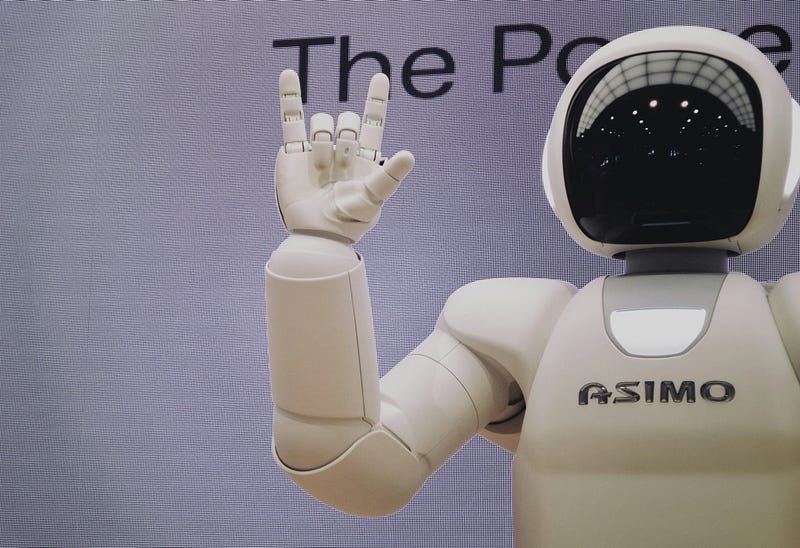The Transformative Impact of AI and Machine Learning in IT
Written on
Chapter 1: The Evolution of IT through AI
In the rapidly evolving field of information technology, where speed and efficiency are paramount, a revolutionary shift has been brought about by artificial intelligence (AI) and machine learning (ML). These cutting-edge technologies are redefining the landscape of IT, enhancing operational efficiency to unprecedented levels and creating opportunities that once existed only in science fiction.
The quest for greater efficiency in IT operations marks the beginning of this technological transformation. Historically, IT departments have been burdened with a plethora of tasks, ranging from routine maintenance to complex problem-solving. This not only consumed considerable time but also introduced the potential for human error. Enter AI and ML, the game-changers poised to completely alter IT workflows.
At the heart of this revolution lies AI, a domain of technology that enables computers to learn from experience and improve without explicit programming. ML algorithms can analyze vast datasets, identify patterns, and generate highly accurate forecasts and decisions. This capability is particularly advantageous in the IT sector, where the management and analysis of large datasets is commonplace.
Consider a large software company that struggled to manage a growing influx of support tickets. Previously, resolving these tickets required a team of IT professionals to manually sift through them, a process that was labor-intensive and often error-prone. The solution? An AI-driven ticketing system.

Photo by Marius Masalar on Unsplash
Leveraging historical data, the AI system learned by analyzing past tickets, responses, and resolutions. Over time, it developed the ability to categorize new issues, prioritize them based on urgency, and even suggest possible solutions. As a result, the IT support team's response times were significantly reduced, ticket handling accuracy improved, and workflows became more efficiently managed. This is just one example of how AI can enhance IT productivity.
Predictive maintenance is another area where AI and ML are making significant strides. Traditional IT infrastructure maintenance often relies on reactive measures, addressing issues only after they arise, which can lead to disruptions and downtime. However, with ML algorithms analyzing real-time system performance data, IT teams can now anticipate specific failures before they occur.
For instance, consider a data center that relies on numerous servers and networking devices. These devices provide the information needed to train a machine learning model, which can detect early warning signs of potential failures, such as unusual temperature spikes or erratic network traffic patterns. By proactively addressing these issues, IT personnel can prevent costly interruptions and ensure uninterrupted operations.
Cybersecurity has also benefited from the integration of AI and ML in IT. As the sophistication of cyberattacks grows, traditional security measures often fall short.

Photo by Possessed Photography on Unsplash
By analyzing network data, identifying unusual patterns, and accurately detecting potential threats, AI algorithms can enhance security measures. IT organizations can stay ahead of cybercriminals and protect sensitive information by adopting a proactive stance. Imagine a scenario where a sophisticated phishing attack targets a business. Initially, conventional security measures might not recognize the threat. However, an ML-enabled security system can analyze email patterns, user behavior, and previous attack data to identify signs of phishing attempts. By utilizing this technology to report suspicious activities in real-time, IT teams can respond swiftly and mitigate risks.
In addition to these practical applications, AI and ML are also fostering innovation in IT service management. AI-driven automated chatbots are increasingly used to handle repetitive tasks and inquiries, allowing human IT workers to focus on more complex issues. These chatbots continuously learn and improve their responses based on user interactions, enabling them to answer questions instantly, resolve common problems, and assist with system configurations.
Another advantage of integrating AI and ML into IT is the capacity for smarter decision-making. AI-powered analytics solutions can provide rapid insights into IT operations, assisting organizations in making data-driven choices. For example, AI algorithms can analyze trends in user behavior, system performance, and resource utilization, offering recommendations for enhancing IT infrastructure.
It is becoming clear that AI and ML are more than mere trends; they represent a fundamental shift in how IT operates as more organizations embrace these technologies. The benefits are undeniable: improved productivity, precision, forecasting capabilities, and effective solutions to the evolving challenges of the digital age.
Nonetheless, the advancement of AI and ML also presents challenges. Careful planning, financial investment, and a commitment to ongoing training and development are essential for successfully harnessing these technologies. IT professionals must stay updated on advancements in AI and ML to ensure they possess the knowledge and skills necessary for effectively utilizing these tools.
Moreover, as AI and ML become increasingly integrated into IT systems, ethical considerations and data protection issues must be addressed. Ensuring that these technologies are applied ethically and transparently is crucial for maintaining trust and safeguarding sensitive information.
In summary, the emergence of AI and ML in the IT sector signifies a profound shift toward enhanced efficiency and innovation. By leveraging these technologies, organizations can bolster cybersecurity, expedite operations, and facilitate more informed decision-making. The future will undoubtedly be shaped by the collaboration of human expertise and machine intelligence, paving the way for a more robust and dynamic technological landscape.
The Rise of AI: Impact of AI and Machine Learning in Construction - YouTube
This video explores the transformative effects of AI and ML in various sectors, including construction, emphasizing their potential to revolutionize operational processes.
The Rise of Artificial Intelligence through Deep Learning | Yoshua Bengio | TEDxMontreal
In this TEDx talk, Yoshua Bengio discusses the advancements in artificial intelligence through deep learning and its implications for the future.
This content thrives on the support of amazing readers like you. If you found it valuable, please share it and subscribe to receive upcoming stories directly to your inbox.